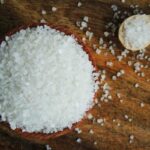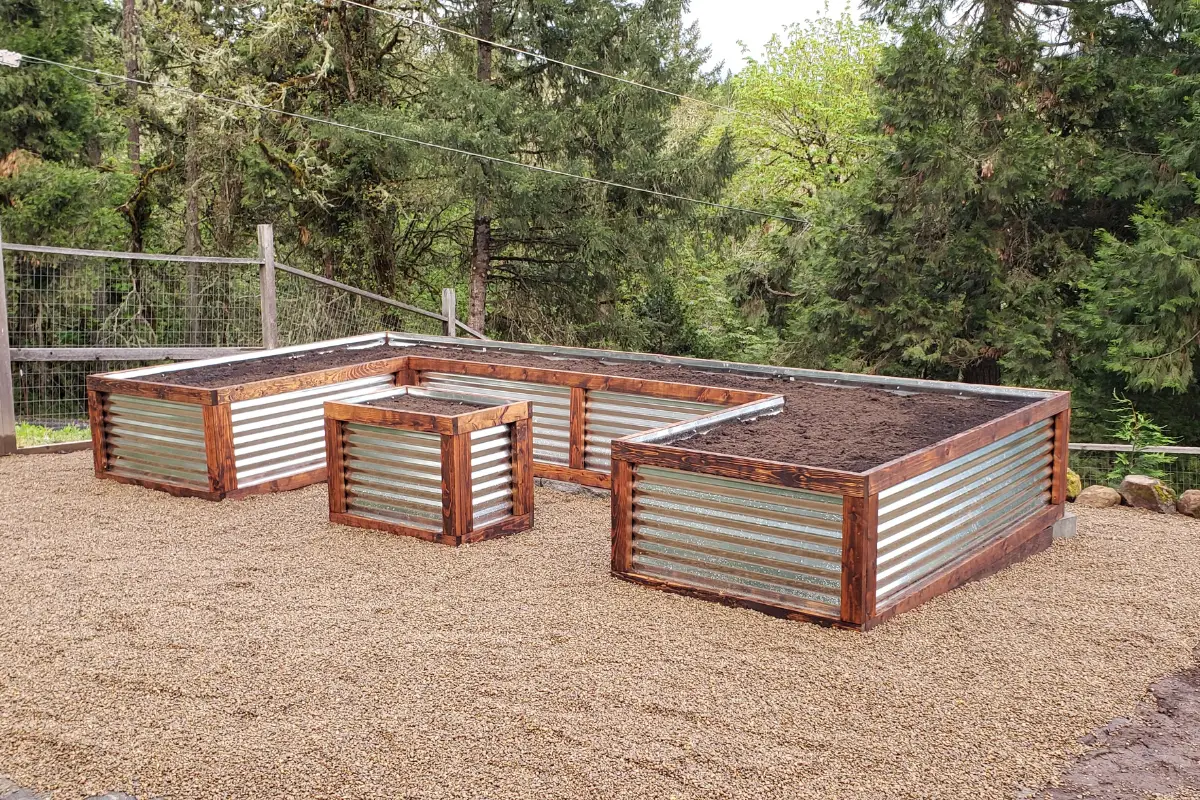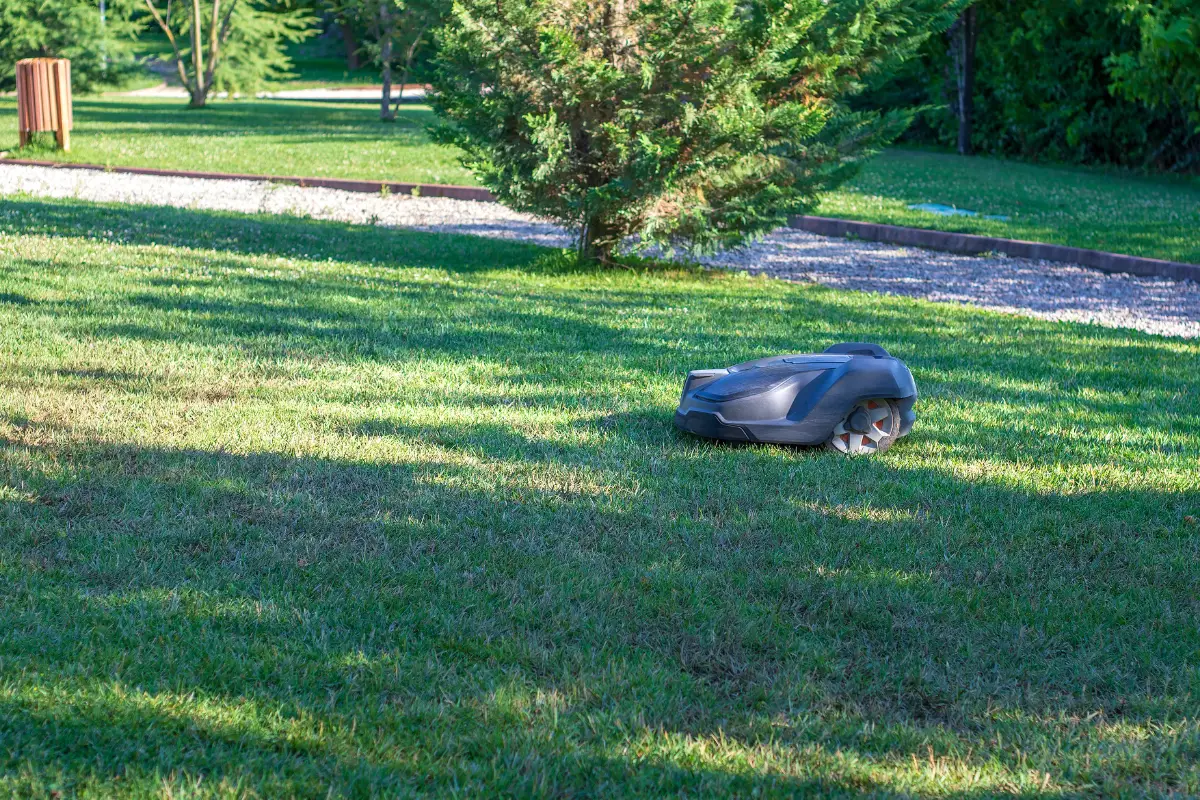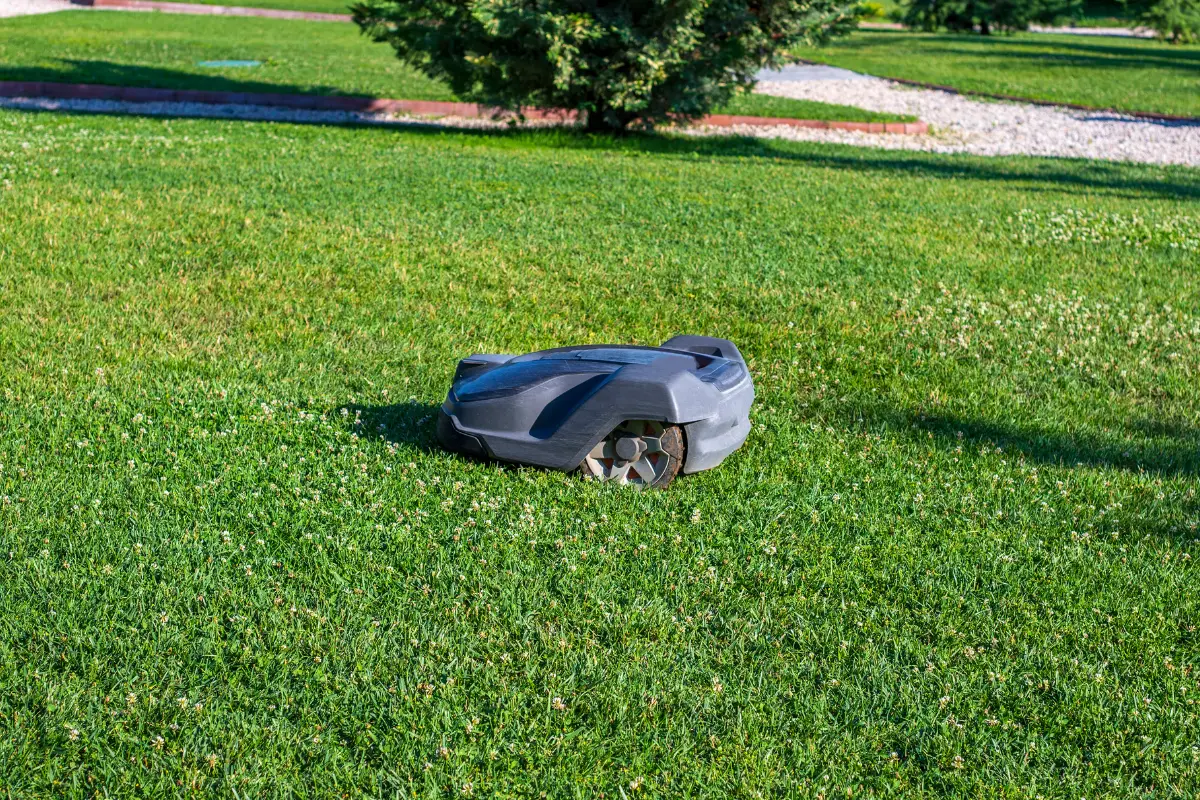Organic gardens need trace elements such as magnesium, iron, and boron to supplement the main nutrients in the soil. Trace elements help to create higher quality crops, especially when it comes to edible crops. Below, explore seven great materials you can use to supply trace elements to an organic garden, including
- Liquid seaweed fertilizer
- Garden lime
- Dolomite
- Organic fertilizer
- Kelp meal
- Organic chelates
- Green manure
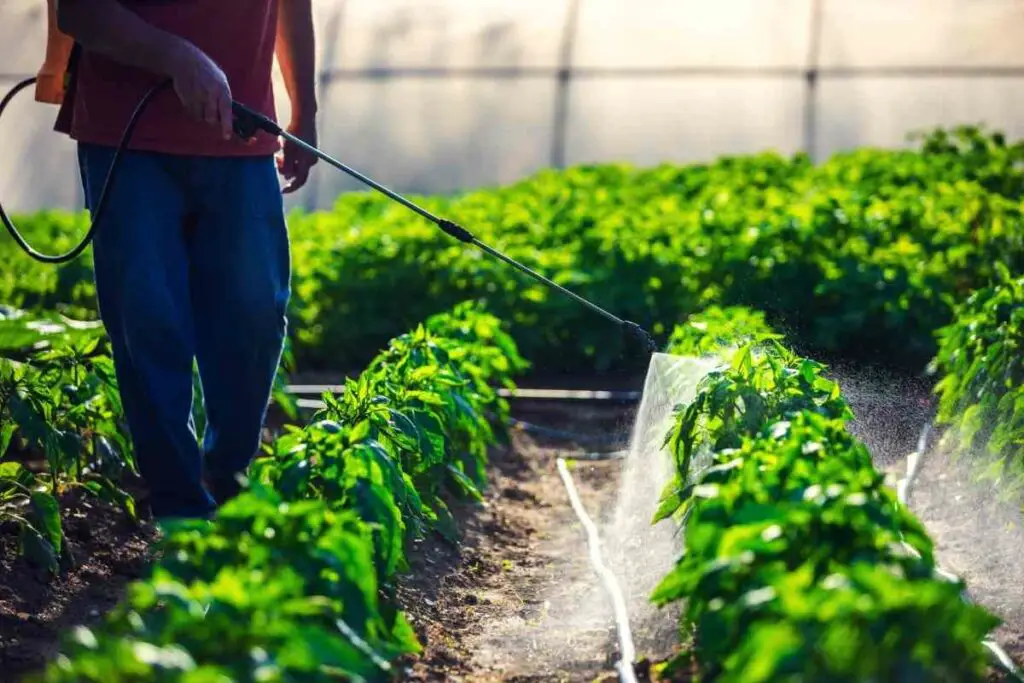
Table of Contents
How Does Liquid Seaweed Fertilizer Supply Trace Elements To Organic Gardens?
Liquid seaweed fertilizer is rich in micronutrients, as well as trace elements. It’s a type of biofertilizer and a good choice if you already have the nitrogen, potassium, and phosphorus content covered in your soil.
Liquid seaweed fertilizer promotes stronger and healthier plants by supplementing trace elements. These include iron and magnesium, which are important for plant photosynthesis.
You only need to apply fertilizers like this in small quantities to achieve the desired effects. Benefits of this trace element source include the fact that it’s organic, and its production is more sustainable. It’s also cost-effective, and you can find bottles of it for affordable prices online.
How Does Garden Lime Supply Trace Elements To Organic Gardens?
Garden lime is another source of trace elements needed in organic gardens, such as calcium. Calcium is necessary to avoid stunted plant growth, dying buds, and curling leaves.
Calcium also works to prevent diseases such as blossom end rot, commonly found on tomato plants of different varieties.
Garden lime also raises the pH of the soil, which is beneficial in cases where the soil has a pH deficiency (not basic enough).
Certain garden lime additives also contain trace elements such as magnesium, like this one. It’s a pretty affordable way of supplying trace elements to an organic garden.
How Does Dolomite Supply Trace Elements To Organic Gardens?
Dolomite is very similar to garden lime since they are both sources of the element called limestone. This is a calcium-rich substance found in chalk, cement, and other mixtures.
Dolomite, however, is different from garden lime in that it contains more magnesium. Dolomite is also a clay-breaking mineral. It doesn’t have impurities such as sand, clay, or silt that might show up in limestone.
Most organic gardeners make use of dolomite in the soil to fix the problem of a magnesium deficiency. Again, having enough magnesium in the soil helps to aid in photosynthesis.
How Does Organic Fertilizer Supply Trace Elements To Organic Gardens?
Another way to get trace elements is to buy organic fertilizer containing the trace elements that your soil is lacking. You can do a simple soil test to figure out which elements are deficient.
If trace elements like iron or magnesium are deficient, then look for an organic fertilizer rich in those. When you go to a garden supply store, you’re going to find all kinds of organic fertilizer options.
They each have different elements and minerals included to treat different soil problems. This is why it’s important to choose wisely.
Some examples of organic fertilizers with good trace element content include:
- Hortimix Trace Elements fertilisers containing added magnesium and iron
- SEA-90 Foliar Minerals and Trace Elements Organic Fertiliser with added magnesium content
- Dr. Earth Organic 5 Tomato, Vegetable ; Herb Fertiliser Poly Bag containing added magnesium and other trace elements
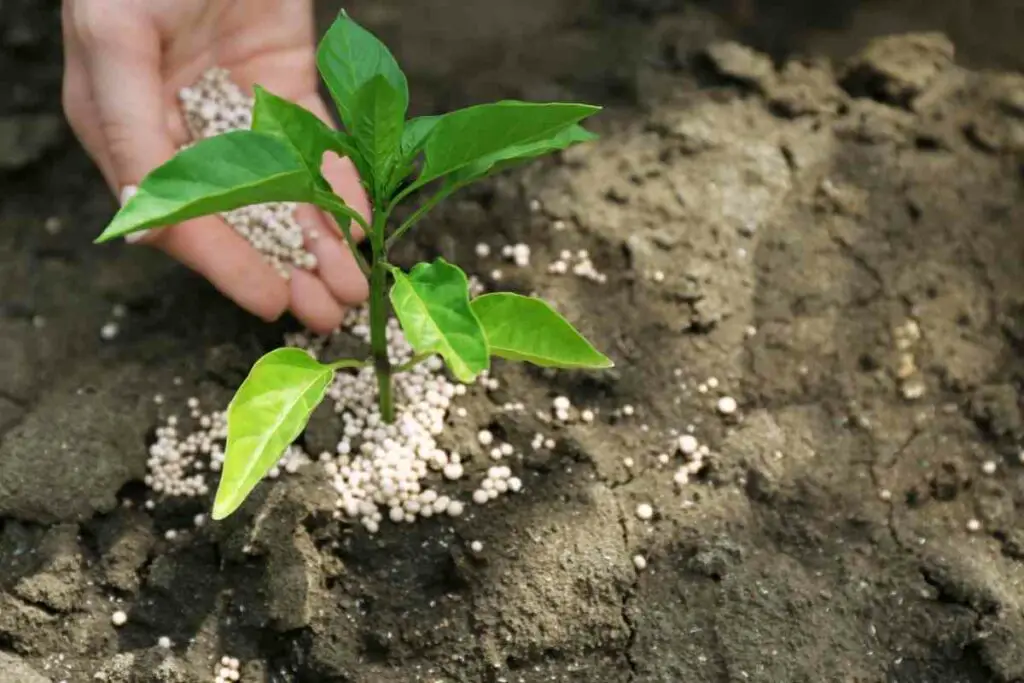
How Does Kelp Meal Supply Trace Elements To Organic Gardens?
Kelp meal is similar to liquid seaweed fertilizer. They are both organic fertilizers that work as “biostimulants”. Since kelp is a type of brown algae seaweed, it shares some properties with seaweed.
Typically, kelp meal contains an abundance of micronutrients, including trace elements like:
- Calcium,
- Magnesium
- Copper
- Iron
- Zinc
Kelp also contains traces of chromium and manganese.
Because of its high concentration of micronutrients and trace elements, you don’t need to use much of it. A small amount goes a long way in promoting plant growth.
A big benefit of kelp meal is that this extract grows in abundance, so it’s a sustainable production process. It works well to supply trace elements when you’re growing flowers, veggies, and herbs.
It also helps to strengthen plants against diseases and make the root systems stronger overall.
You can use kelp meal at any stage of plant growth, even as early as seed soaking before germination.
How Do Organic Chelates Supply Trace Elements To Organic Gardens?
Organic chelates are the product of trace elements combined with organic compounds. This is why organic chelates make a great source of trace elements for organic gardens.
Organic chelates are natural sources of trace elements. However, you can also buy synthetic chelates to achieve the trace element content you need in your garden’s soil.
Iron chelate is an example of organic chelates. This particular chelate is important when treating soil iron deficiencies.
If soil is deficient in iron, it can lead to growth issues such as yellow leaves. This is because plants need iron for chlorophyll production, and chlorophyll is what turns leaves green.
How Does Green Manure Supply Trace Elements To Organic Gardens?
Finally, green manure is an apt source of trace elements in organic gardening. Green manure is different from animal manure since it is solely planted matter or a combination of plant and animal waste.
Green manure is a sustainable type of organic manure that fertilizes the soil and adds important nutrients.
If you have an iron deficiency in your soil, green manure could be a good fix to your problem. The trace element content will depend on the type of green manure you use. You can make green manure out of different types of plants – each containing different ratios of elements.
For example, clover, ryegrass, and buckwheat are common green manures. Buckwheat, in particular, is rich in iron and magnesium. This is great for soil with iron or magnesium deficiency.
Furthermore, clover is rich in selenium, which some plants need trace amounts of to thrive. And ryegrass has a high content of boron, iron, and especially magnesium.
Final Thoughts
Is your garden lacking the necessary trace elements your garden needs to thrive?
Here at The Walled Nursery, we recommend trying one of the best organic fertilizers around, Dr. Earth Organic 5 for more nutrients and tasty vegetables as it is made from 100% Organic and natural ingredients.
But other ways like liquid seaweed fertilizer, garden lime, dolomite, kelp meal, organic chelates, green manure. For more information about each individual one, read above.









